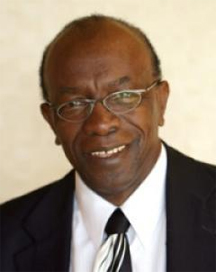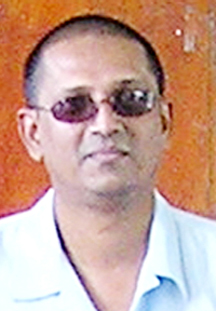To use a popular oxymoron Guyana’s cricket is in a fine mess.
Instead of the simple issue of whether the Ramsey Ali-led Guyana Cricket Board (GCB) was legitimately elected, Guyana’s cricket is now facing a number of complex charges, including the more serious charge of government interference.
This follows the decision by the Minister of Culture, Youth and Sport, Dr. Frank Anthony, to replace the Ramsey Ali-led GCB with an Interim Management Committee (IMC).

Additionally, the GCB is not an incorporated body, neither are its members, namely the Essequibo, Demerara and Berbice Cricket Boards. They have no legal standing and as such cannot sue nor be sued.
The clubs, under the umbrellas of these associations/federations are also unincorporated bodies and the same applies to them.
As Chief Justice Ian Chang ruled, the GCB, despite its name, is nothing more than an association and not a Board because the body has not been incorporated.
This situation has often led to the emergence of and accusations of phantom clubs whenever the Annual General Meeting and subsequent elections for office bearers of sports associations/federations take place.

Because of the government’s “interference” in replacing the GCB with an IMC tasked with regularizing some, if not all of the above ills, Guyana, it was stated, stood to face some type of sanction from the WICB and in fact, the National Twenty20 team, faced the possibility of being unable to participate in the Regional Twenty20 competition which begins tomorrow in Antigua before pressure on the West Indies Cricket Board (WICB) from WIPA and CARICOM saved the day.
The WICB, one of 10 full members of the International Cricket Council (ICC), has reiterated its previously stated support for the incumbents which is, that the body is the only organization that can “organize or request the sanction of official cricket in Guyana.”

The WICB has made it pellucidly clear to Minister of Culture, Youth and Sport, Dr. Frank Anthony, that ideally, the IMC should not have replaced the GCB but act in an advisory capacity.
“The WICB cannot accept the interference of the Government of Guyana in the administration of cricket in Guyana and certainly cannot accept the dissolution of the recognized GCB,” a release from the WICB stated.
According to the ICC, government interference can take the following forms.
Involvement of government officials in the selection or appointment of cricket teams, coaches or other personnel, including:
(a) Right of approval (or merely ratification) over such selection/appointment;
(b) The making of recommendations for selection/appointment; or
(c) The right of veto over selection/appointment;
(ii) Any form of influence, whether direct or indirect, over the administration of cricket in a Member country, including:
(a) The day to day decisions of the Executive Body or management team;
(b) The staging of cricket matches in a Member country; or
(c) The process or outcome of any disciplinary enquiries carried out by a Member
In essence what the WICB is saying is that the Guyana Government cannot dissolve, or cast aside the Ali-led administration using the above mentioned guidelines although there seems to be some latitude with government interference as it relates to financial probes.
So where does that leave the government?
The government was forced to go this route after Chang’s ruling which came as a result of an injunction filed by Angela Haniff of the Berbice Cricket Board (BCB) following the staging of the GCB’s Annual General meeting where, for the first time in years, the Demerara Cricket Board (DCB) was not represented.
For
The case for government’s intervention hinges upon what should be government’s role in the administration of sport in a country.
Sport has a far reaching effect on the social development of a country and helps provide a framework for cooperation among the various sectors of society including ministries, NGO’s and the corporate community.
One government programme that seeks to achieve those objectives is the Days of Interaction programme run by the Department of Sport.
Most countries have a National Sports Policy which clearly spells out the country’s role in the promotion and development of sport for all persons regardless of race, sex, and present health status simply because of the befits to society.
The failure to implement our National Sports Policy and the absence of a functioning National Sports Commission (NSC) can be seen as major contributors to the present situation which is affecting all our sports disciplines but more especially cricket and football two of the more popular sports.
In fact, the absence of a coordinated National Sport Policy has clearly resulted in the fragmented associations within the Demerara Cricket Board, the rift in football and has led to a lack of transparency and accountability in most sports associations.
The government has repeatedly stated that work on a National Sports Policy has been done by Dr. Colin Higgs, but the policy is yet to be implemented.
It is therefore time that the government `Carpe diem’ to not only implement the policy but also commence the task of regularizing sports associations, starting with cricket and then moving on to football and the rest.
For the patently obvious lack of accountability and the absence of progress year in, year out, sports associations and all of the clubs that come under their umbrellas, must be incorporated.
Against
Ideally, one expects that issues within sports associations should be handled by either the associations or their parent bodies and this approach is favoured by the international sports federations such as FIFA and the ICC.
But this approach does not always provide the solution; the situation with the DCB is a case in point.
For the first time in the history of cricket in Guyana there were actually two separate elections for one county constituent of the GCB.
This situation should not have been allowed to exist.
The GCB should have instituted a process which would have led to there being only one DCB, eventually evolving to the phase where all three counties were represented at the eventual staging of the AGM.
With only the Essequibo Cricket Board members voting along with one official from the BCB, the GCB elections appeared to be a farce, flawed; a hand over of sorts and not in essence, a thorough, democratic process.
The blame for this must lie with the GCB, and to a lesser extent, its parent body the WICB.
Because of its failure to regularize the situation, the matter eventually reached the Court, and it is still engaging the Court’s attention.
The WICB clearly did not properly investigate and ultimately satisfy itself that the subsequent elections at the GCB Annual General Meeting (AGM) were free, fair and democratic as stipulated by its own constitution and that of the ICC.
A similar problem exists within football where the General Secretary of the Guyana Football Federation (GFF), Noel Adonis, supervised the elections of the Georgetown Football Association (GFA) in 2010, only for the GFF to last year deny that sub-association voting rights in the lead up to the aborted AGM.
As expected, the GFA filed a Court injunction against the GFF.
Clearly, leaving national federations/associations to solve various issues is fraught with the possibility of the process being contaminated; hence the obvious need for some sort of external intervention.
The danger of government being involved in sport administration is that governments themselves are often accused of the same things that sports associations executive members are although in different spheres and at different levels.
In short, there is absolutely no guarantee that the government will preside over a democratic process if they do get involved.
The solution seems to be the incorporation of clubs and associations and the formation of boards to govern and overlook the workings of the clubs/associations.
AGM’s must also be open to anyone who wants to attend including the press and there should be observers preferably from the parent organizations.
What is clear is that there is a rush by persons to get involved in sports administration not so much because they want to better the sport but simply because of how lucrative sports has become.
The advent of television has resulted in huge sums being paid to international sports federations by sports networks such as ESPN for the rights to broadcast sporting events and tomorrow’s Regional T20 tournament is being broadcast by ESPN Caribbean.
Jack Warner’s claim that FIFA sold him the 2006 television rights for one dollar in return for his support is a telling indictment against sports administrators and a clear indication as to their reasons for getting involved in sports.
Despite getting the World Cup rights so cheaply some 13 of the Trinidad and Tobago national footballers who played in the 2006 tournament and who were mainly responsible for Warner getting the TV rights are still owed 50 per cent of the commercial revenues from the World Cup.





